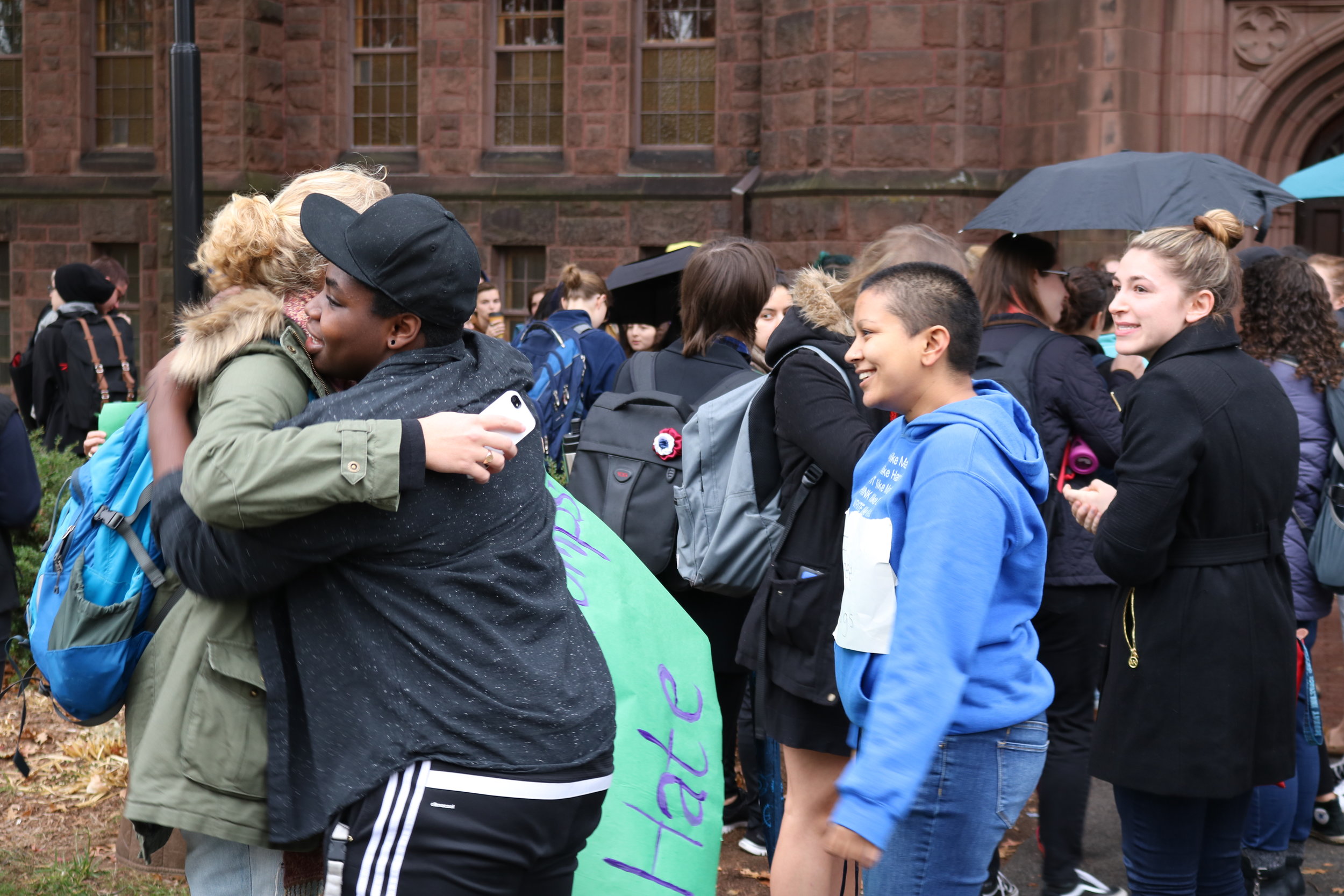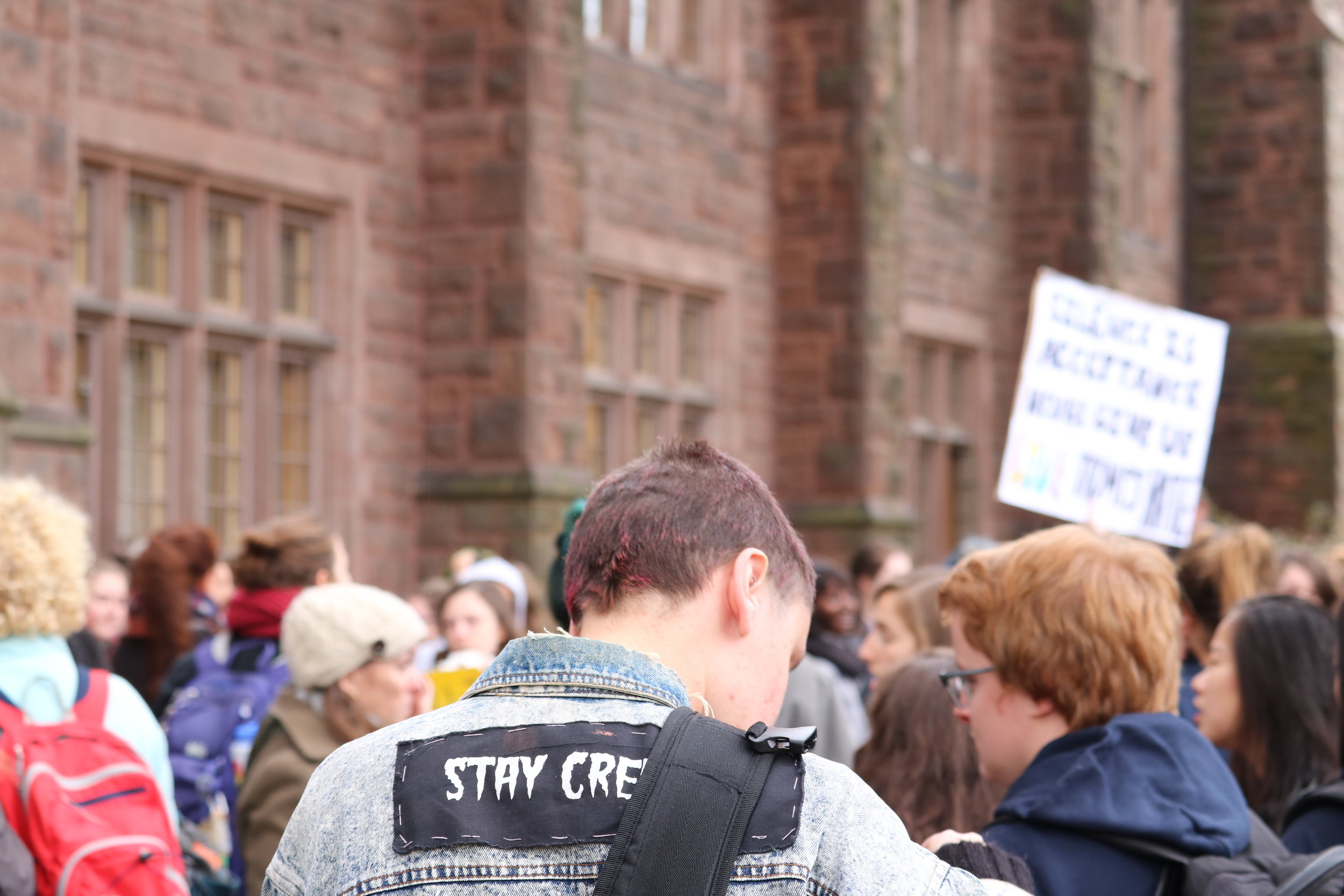BY ANQA KHAN '17
Every day for the past three weeks, I’ve proudly worn a bright red hat emblazoned with “Make America Mexico Again” over my hijab. It’s garnered a lot of double takes, but I wore it in the name of a historically accurate joke that I thought would no longer be relevant after Nov. 8.
The humor has soured in my mouth.
It is no surprise to anyone that I am a brown Muslim woman. Those identities are arguably the most visible part of my existence, and the most visibly targeted as well. This election has brought this more to the forefront, but it’s not like this intolerance has not been present before. It’s not like I haven’t faced years of racialized harassment layered on sexual harassment, the “go back to your country!”s and “fuck you muzzie!”s. None of this is new, but others keep finding my experiences of racist oppression to be novel.
But that is not where it ends. The immediate Islamophobic backlash is the only thing that is visible in this current moment. My identity as a low-income person from a family of seven, where we’ve been dependent on medicare and social welfare services our entire lives, is unknown. Few can possibly know the devastation that would befall my family and my community should our new president-elect make good on his promises to defund such programs. Few are aware that I live in a crowded, poor, sanctuary city where friends and neighbors stand to lose their paths to citizenship or, worse, face imminent deportation. Few have gone through the failing public school system in my hometown that only stands to get worse with conservative policies, where kids like me might not get the privilege to leave and be the first in their families to attend college. Few understand how dependent I am upon government financial aid, and how much it physically hurts me to think that my four younger siblings could be denied higher education if funding for resources like Pell Grants is nixed.
This extreme compartmentalization of myself, the dichotomy between my visible and invisible identities, is terrifyingly unfair. Islamophobia is undoubtedly salient, and I am undoubtedly impacted by it, but it is simply the most apparent -ism I face. My Muslim identity may socially and emotionally hurt me — but every other factor that makes up my existence sets me up for financial, physical and political destruction. This new political agenda is solely concerned with dismantling our sense of personhood.
How do I even begin to unpack my identity as a second-generation American? How do I know for sure that my Kashmiri-born, U.S. citizen parents won’t be penalized for the land on which they were born? When I tell my siblings that they are safe, that they are okay, that we will be fine — how many times do I have to grit my teeth and cross my fingers behind my back? If my 10 year old brother wakes up crying, asking where we will go for the next four years, how can I fight back my own tears? How can I contest a system, a country that never wanted me, my poor, brown, Muslim, woman, foreign self? What part of my identity do I prioritize when I put myself on the defensive for the next four years? How am I meant to operate if every single part of my identity is under direct fire?


